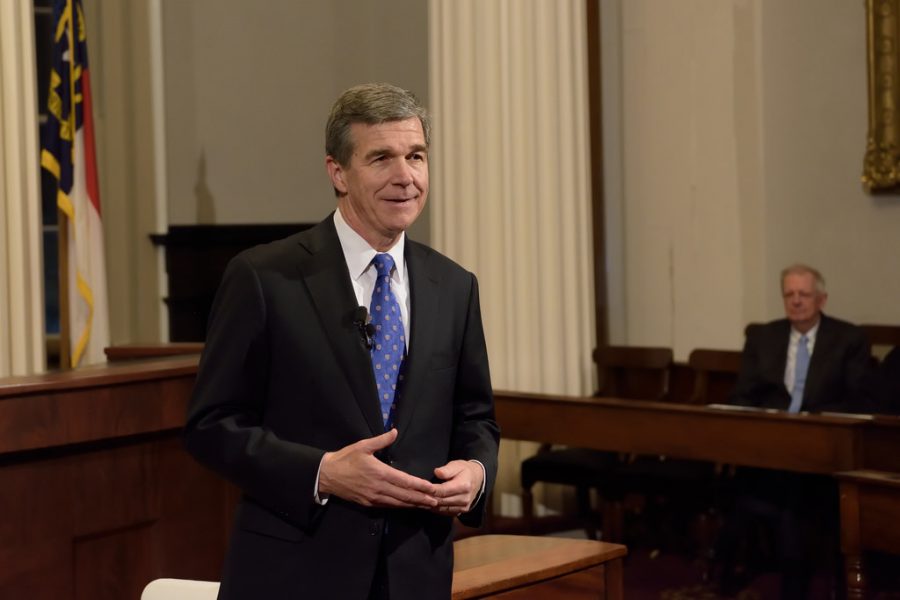“Bathroom Bill” repealed in NC General Assembly
Pictured at his inauguration, Roy Cooper lays out his plans for progress in North Carolina. Since HB2 was instated, Cooper has been devoted to nondiscrimination efforts and repealing HB2.
April 3, 2017
“Today, our laws catch up with our people,” Governor Cooper announced on March 30. Last Thursday, the controversial state law limiting LGBT rights and transgender bathroom access was repealed in the North Carolina General Assembly.
Late Wednesday night, Governor Cooper and Republican legislative leaders reached a compromise on the repeal of HB2, also known as HB142 Reset of S.L. 2016-3. After speeding through a lone committee meeting, the measure was passed by the House on a 70-48 vote and the Senate on a 32-16 vote, which was on the Governor’s desk by mid-afternoon.
Opposed to a “clean repeal,” the parties compromised to restrict municipalities from passing anti-discrimination ordinances to protect LGBT individuals or workers rights’ until 2020. The repeal was influenced by the NCAA’s threat to move all championship games out of the state until 2020 if the discriminatory bill was not repealed by Thursday, March 30. The NCAA deadline looming over the debate was a pressing economic factor, as the state has lost an estimated $600,000,000 (Forbes) in light of “The Bathroom Bill”. The ACC recently announced that North Carolina is eligible again for ACC postseason events. The NCAA has yet to announce whether the compromise was sufficient enough to continue future championships in North Carolina.
Thursday’s House and Senate votes on HB142 did not fall along party lines. While the Democratic party endorsed the compromise, individual liberals and liberal groups have expressed displeasure with the compromise, dubbing the measure “HB2 2.0”. Across the aisle, conservative groups cite their ungrounded concerns for restroom violence against young girls and women. In the eyes of Millbrook junior Sydney Horwitz, the compromise is not sufficient: “It isn’t getting rid of the underlying problem of discrimination in North Carolina.” Even Governor Cooper conceded that the compromise was not his first choice, but the best choice at this time.












